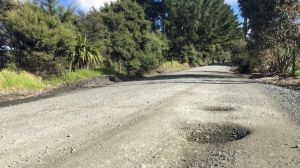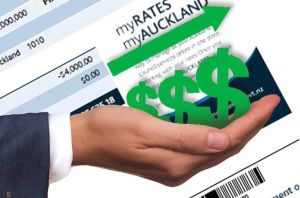19 August. David Long – Reporter Stuff. Blindsided’: Auckland pensioner hit with 41% rates increase, despite average being 5.8%.
Auckland Council has been accused of “misinforming” and “blindsiding” Rodney residents, some of whom are facing rates increases of up to 41%. 
This year, the council announced an average rate rise of 5.8% for residential properties, which is the lowest for any metropolitan council in the country.
Councils are required to value properties every three years. When this was last done, in June, it found that there had been a 9% drop in residential properties, as of May 1, 2024, but a 4% increase for rural properties.
Rates are allocated according to relative property values. This means if an area’s capital value drops less than the Auckland average, that area ends up paying a larger portion of the city’s total rates bill.
Matakana pensioner John Wilson says he was stunned when he found out that his rates bill would be increasing by 29.25% to $4551 this year.
“I think we were misinformed by Council,” Wilson said.
“They have been able to square the books with a 5.8% increase overall, but in Rodney, most of my neighbours have had a 29% increase as well.
“The other thing that irks me is that we don’t get a lot of services from the Council. It’s a double whammy. We’re late into our retirement, and we’re just reeling from this increase.”
Wilson says he and his wife, who live in a three-bedroom bungalow, will have to make further cutbacks.
“We will certainly have to adjust, and we are adjusting to the economic climate anyway,” Wilson said.
“So we don’t have coffee every day, we don’t go out for dinners, and we really have to tighten our belts. This is just another hit.”
Wilson plans to apply to Auckland Council for a rate review. He believes he isn’t getting good value for money living in his rural property.
“They don’t supply effluent removal or a facility to link into the system, they don’t supply water and the roads are shocking,” he said. 
“I would have expected to get more for our rates and not get penalised.”
Kathryn Ashworth, who is also a pensioner and lives alone in Mahurangi West, says her rates rise is even higher.
“I didn’t realise to start with,” she said.
“A few people had said theirs had gone up by 35% but then I did a calculation and it came out as 41% so I’ve gone up by $500 per quarter.
“Living in a rural community, we’ve got to do our own stuff. I’ve got to make sure that my own water is sorted out, my own septic sorted out. The Council now wants me to pay annually for inspections, which they didn’t use to.
“I don’t get to take advantage of all the things that the council provide. I don’t mind helping to contribute towards that. But I feel like they say this is the way we’ve always done it, and to me, it’s not a good response for the fairness of it all.”
Ashworth sent an email to Auckland Council CEO Phil Wilson on Monday night outlining her concerns.
Rodney councillor Greg Sayers isn’t happy with how Auckland Council handled this rate rise.
“Everyone got blindsided by the size of the rate increases,” Sayers said.
“There was no forewarning by the Council that it was going to be such a large increase, based on the CV (capital value) exercise that it went through.
“Not only weren’t the public forewarned, but neither were the elected members, including myself as councillor for Rodney. That was extremely disappointing and a point of ongoing anger.
“I’d say there’s unfairness in two ways,” he added. 
“With a 40% rate increase, those people in our community aren’t going to experience a 40% increase in council services, and there was no forewarning by Council, and there’s no natural justice in that.”
Sayers believes there should be a rates cap to limit the maximum percentage that rates can rise in a year. He has written to Mayor Wayne Brown and Auckland Council CEO Phil Wilson requesting this.
Sayers would also like an independent service and performance auditor brought in, something that the Royal Commission on Auckland Governance, which created the supercity, recommended.
“Their primary job would be to protect the interests of ratepayers independently of any political spin doctoring, political pressure or self-interest from council staff,” Sayers said.
“The idea is to have a public watchdog to hold both elected members and staff to account with the ability to fully investigate and independently comment on Council’s performance at any level across the organisation.”
Auckland Council did not respond to questions from Stuff by the deadline for this story.
